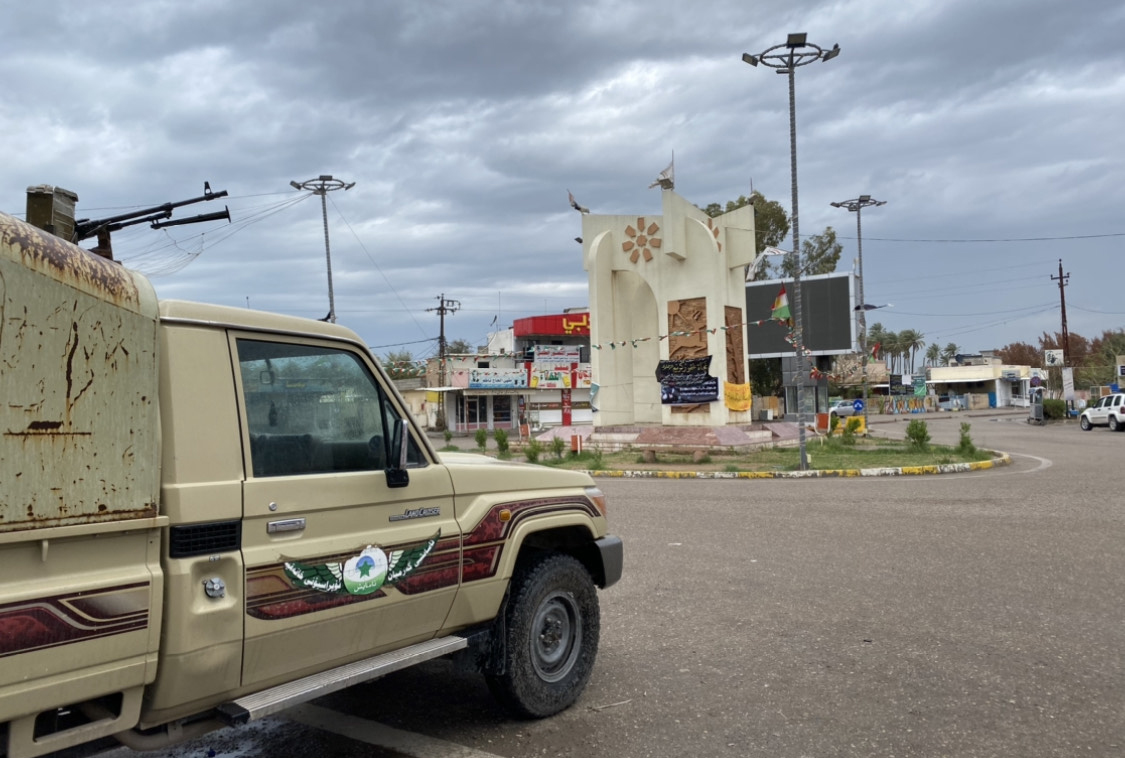The mayor of Khanaqin district, northeast of Baghdad, called on the police not to allow any journalists or media teams to work in the district without obtaining official approval.
The request KirkukNow got a copy of it, submitted to the police on September 19, is contrary to applicable laws on journalism, but is supported by the union and journalists in the district, in order to "regulate media work and not insult the people of the city.”
The procedure follows a video by a local media few days ago. The host interviewed a local speaks Khanaqin dialect, some people later posted part of the video interview with satire and jokes.
Abdul Wahab Hussein, a journalist in Khanaqin, posted the decision on his Facebook account and supports it.
"I support this decision to stop the insults of some journalists and media outlets to the people of the district," he told KirkukNow.
"In recent weeks, a media outlet insulted the people of Khanaqin by taking statements from a person from Khanaqin and published it," he said.
I support this decision, in order to stop the insults of some journalists and media outlets to the people of the district
Khanaqin district, on the borders with Iran, in Diyala province is part of the disputed territories, in addition to Kirkuk, part of and Ninewa and Salahaddin, that a three-stage process has been outlined in Article 140 of the Iraqi constitution in 2005 to put an end to Kurdistan Regional Government KRG and the Federal Iraqi government dispute over these areas.
Article 140 stipulates normalization, a population census and a referendum on the status of the territories, yet it has not been materialized up the preset, leaving the area in security gap, missing basic public services.
A joint center of the army and Peshmerga has been established in Khanaqin and several other disputed areas for military coordination to track the remnants of the Islamic State of Iraq and Syria ISIS and tighten security procedures.

"It is better for media outlets outside Khanaqin to get approval when they enter the district for journalistic work and then allow them to work. It is better for them also in order to be protected," said Zainab Arkawazi, a journalist from Khanaqin.
"I support this decision and I am aware that what happened should not be repeated so that the media work can be reorganized and the people of the region can no longer be insulted," he said.
Insulting any person, group or party through journalism is a crime and punishable by law according to the applicable laws on journalism.
Amal Bajalan, head of the Khanaqin branch of the Kurdistan Union of Journalists, also supported the governor's decision and said they have no problem with the decision.
She said the interview was "outrageous" to the people of Khanaqin. "This decision will reorganize the work of journalists.”
"We do not think this decision will restrict the boundaries and work of journalists ... Journalists should obtain a license from the governor's office and inform them that they are in the district, in order to be protected," he said.
We do not believe that this decision will restrict the boundaries of journalism
According to both the Iraqi Journalists' Rights Law and the Kurdistan Press Law, journalists are free to obtain information, news, statements and statistics that are not prohibited and they have the right to publish it within the limits of the law. They also have the right to attend all congresses and general meetings for their professional work.
KirkukNow tried to contact Diler Saya, the mayor of Khanaqin, but he did not respond.
A source in the Khanaqin district administration anonymously told KirkukNow any media outlet must obtain a license from the Khanaqin police.
"The decision is a general guideline and belongs to the central government, the federal government's guidelines are not new and old, but we have lately notified the police.”
"This decision does not restrict the work of journalists, because any agency and journalist who comes to us and obtain an official license, will not be prevented and conduct their own coverage and interviews," the source added.
“Some are not journalists and they come to Khanaqin Bazaar to conduct interviews and work in an irresponsible manner, without respecting the people of the city,” in reference to the video that has been circulated on social media networks for a week.
There are more than six forces in Khanaqin district, including the Iraqi army, the Kurdish Peshmerga (soldier), federal police, pro-Iran Popular Mobilization Forces PMF, KRG Asayish (security) and the local police under the Iraqi Interior Ministry.
Khanaqin District, home to 90,000 Kurds, Arabs and Turkmens, Sunnis and Shias, as most parts of the disputed territories were under control of the Kurdish Peshmerga forces up to October 2017, when the Iraqi Security Forces ISF took over control of these territories following the defeat of the Islamic State of Iraq and Syria ISIS.




